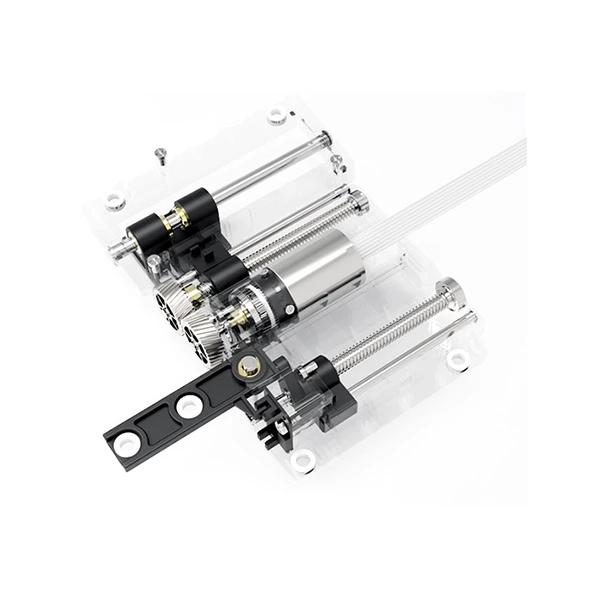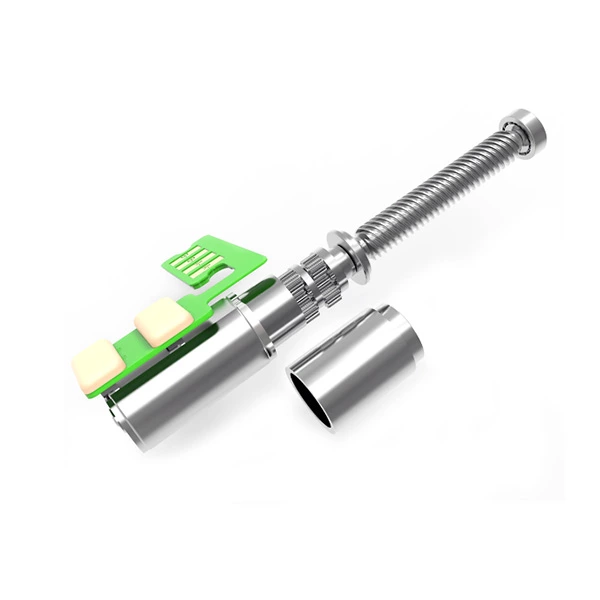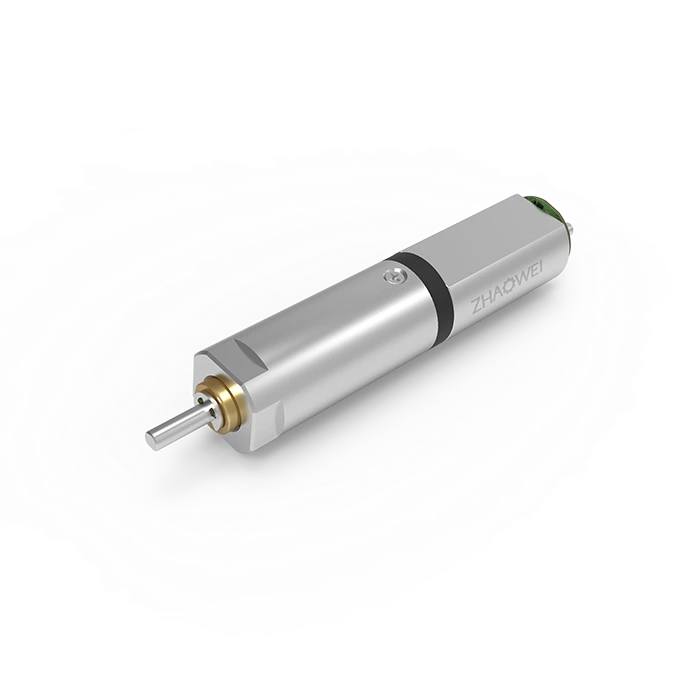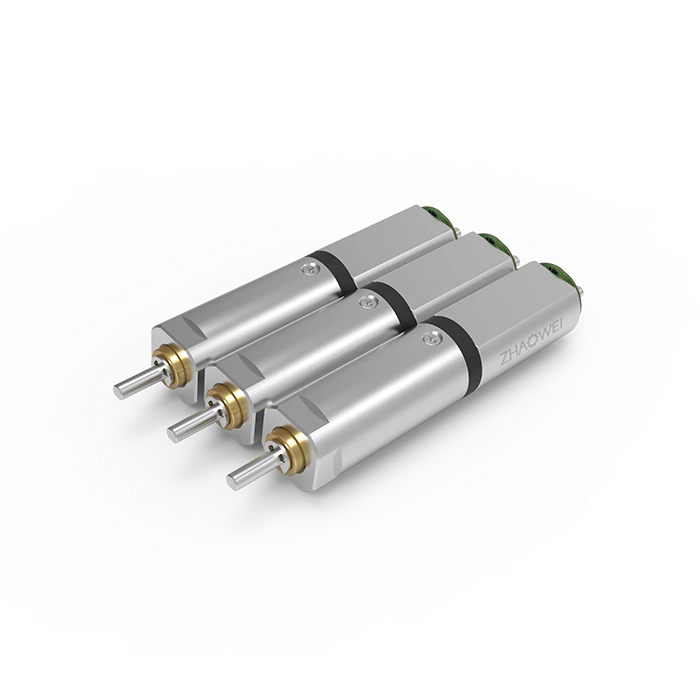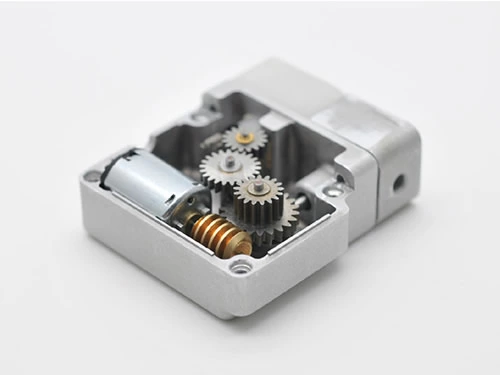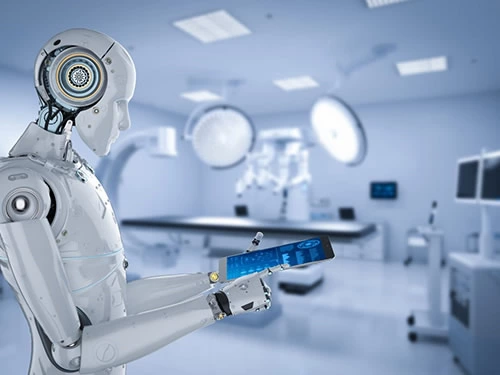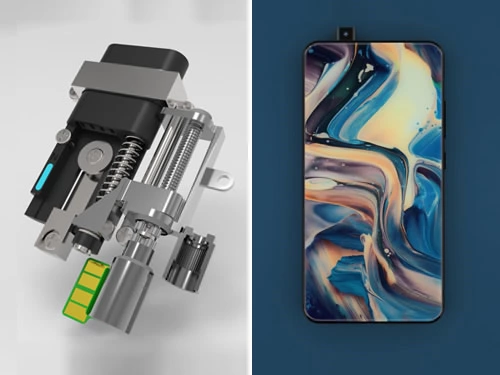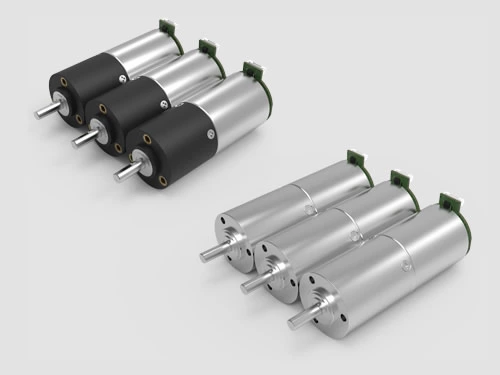Smart Speaker Market: More Intelligent with Embedded “Micro-Drive System”
With the upgrading of bandwidth and the development of AI technology, every household has network access nowadays. The era of intelligence has reached our homes, where smart speakers play a major role. Smart speakers combine with smart home appliances like smart sockets, smart bulbs, smart thermostats, smart air conditioners, robotic vacuums, smart refrigerators, smart TVs, and smart lunch boxes to enhance the overall smart home experience.

Some smart speakers on the market, however, are not smart enough. For example, some speakers cannot directly store power and need to be connected to a charger to operate. Others need to be manually controlled during use. This means that even if the wake-up is successful, the personality and interactive features remain week. Some require adjusting the position of the speaker for better sound quality. These types of speakers are now out of date in the increasingly intelligent world. Shenzhen ZHAOWEI Machinery & Electronics Co., Ltd. (ZHAOWEI) is committed to the R&D and manufacturing of intelligent gear motors for smart home products. The company has designed and developed a rotation reduction module for smart speakers to meet the needs of speaker manufacturers.
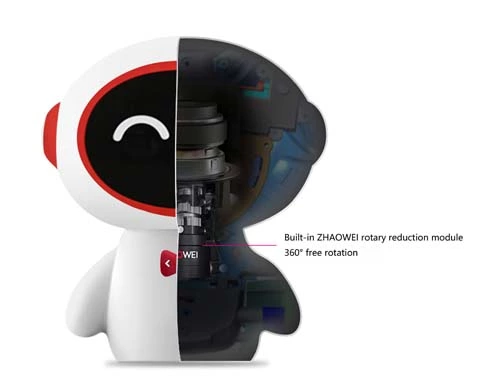
The ZHAOWEI smart speaker micro drive system is used with the encoder of the speaker and placed at its bottom. The rotating base in the rotation reduction module is electrically connected with the control element in a fixed arrangement. The rotating base and the rotating element are in a fixed arrangement, and the control element is electrically connected to the audio element. The DC motor speaker has a compact structure and is small in volume. The speaker cabinet achieves audio playback through use of audio components. If the volume needs to be adjusted during use, the rotary encoder is operated by the rotation of the driving rotating part of the ZHAOWEI rotation reduction module, and the rotating encoder transmits the displacement signal to the control part. The control part controls the volume according to the signal, allowing the speaker to automatically adjust the position according to where the user is standing, forming a beam, suppressing noise, and reducing echo.
In addition, the smart motor speaker rotation reduction module can rotate 360 degrees. Different from ordinary smart speakers, it uses a permanent magnet DC motor as the driving source and a worm gear and helical gear as the transmission part. It can effectively improve issues related to jitter and noise in the smart speaker. Ordinary speakers have intermittent jittering during use. ZHAOWEI has ameliorated the problems of short service life and backlash through the analysis of tooth profile and finite element, thus achieving distinction and alternation of stereo two-channel and dual-stereo four-channel, wide stereo listening range, and producing a good background effect along with the simultaneous operation of sound and light.
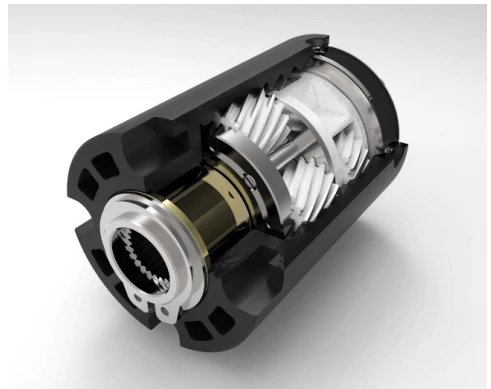
Voice interaction will be one of the development directions of smart home control systems in the future. The smart speaker is only one of its manifestations. Domestic and foreign smart speaker manufacturers are actively exploring new forms. According to the 5G Services Market Size, Share & Trends Analysis Report, “The global 5G services market size is estimated to reach USD 41.48 billion by 2020 and expand at a compound annual growth rate (CAGR) of 43.9% from 2021 to 2027.” The report also points out, “Growing demand for high-speed data connectivity for a unified Internet of things (IoT) applications, such as smart home energy management, is estimated to propel the adoption of 5G services over the forecast period.”
As young people’s demand for smart devices increases, the smart home market will continue to grow. The worldwide market for smart home devices is expected to grow 23.5% year over year in 2019 to nearly 815 million device shipments, according to the International Data Corporation (IDC). Worldwide shipments are forecasted to be more than 1.39 billion in 2023 with a five-year compound annual growth rate (CAGR) of 14.4%. As new technologies such as artificial intelligence and the Internet of Things are often used in home scenarios, the popularization of smart homes will be further promoted, and the smart home market will maintain steady growth. For the players who flood into the smart home track, there are vast opportunities. The competition in the field of smart homes has long developed from a dispute over products and systems to a dispute over ecology. ZHAOWEI provides customization for micro-drive systems and electronic drive modules for the majority of speaker manufacturers.
The Smart Speaker Consumer Adoption Report indicates, “87.7 million U.S. adults were using smart speakers as of January 2020. This means the installed base of U.S. smart speaker users is up 32% over January 2019 and is 85% higher than January 2018.” New partnerships and trade are changing the landscape, and the upgrades in intelligent technology that new investments can bring can attract a large number of new customers and help consolidate current brand loyalty. With the huge market demand and technical support, how smart speaker-related companies will able to survive and develop under fierce market competition is a question that needs urgent consideration.







